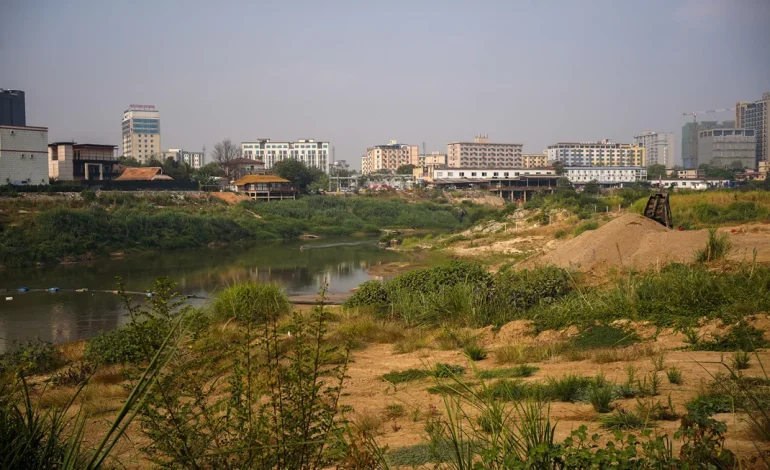Thailand took a significant step in combating the multi-billion dollar online scam industry operating in neighboring Myanmar by cutting electricity supplies to several key areas on Wednesday, CNN reports.
The move targets compounds known to house sophisticated online fraud operations run largely by Chinese crime syndicates.
The dramatic action, broadcast live on Thai television, saw Interior Minister Anutin Charnvirakul overseeing the disconnection of power to five locations across the border from a national electricity grid control station. One of the targeted locations was in Myawaddy, a town bordering Thailand and home to some of the largest scam compounds, housing thousands of forced laborers according to NGOs.
“We are taking action to address this growing problem of online scams and human trafficking occurring across our border,” stated a government official, speaking on condition of anonymity. “This is a complex issue requiring international cooperation, and we are committed to working with our neighbors to dismantle these criminal networks.”
While one local NGO reported that at least one scam compound remained operational on Wednesday afternoon, using alternative power sources, the impact of the power cuts on other sites remains unclear. Some compounds, located near the border, rely heavily on the more reliable electricity and telecommunications infrastructure provided by Thailand.
The online scam factories have thrived in Myanmar since the 2021 military coup, amidst the ongoing civil war and widespread lawlessness. Workers, often lured by false promises of high-paying jobs, are reportedly held against their will and forced to participate in elaborate online fraud schemes. Former detainees have described brutal conditions within the heavily guarded compounds, including beatings and torture.
The issue has gained renewed international attention following the abduction of a Chinese actor who was lured to Bangkok under the guise of a movie casting call, only to be forced to work in a scam center across the border in Myanmar. His eventual rescue and return to China have sparked widespread outrage and prompted hundreds of Chinese families to appeal to their government for help in freeing their loved ones believed to be trapped in similar situations.
Thailand has faced increasing pressure to curb the criminal activity and has recently held a series of high-profile meetings with officials from Myanmar and China, suggesting a coordinated effort to crack down on the syndicates. Prime Minister Paetongtarn Shinawatra is currently visiting Beijing, where she is scheduled to meet with Chinese leader Xi Jinping.
China’s Foreign Ministry expressed its “high concern” regarding the online scammers operating near the Thailand-Myanmar border.
Experts say the scam compounds function as self-contained cities, offering amenities like restaurants, grocery stores, and even daycare centers. Besides scam operations, they also provide real estate for gambling and prostitution. It is estimated that Myawaddy alone houses approximately 6,500 victims from 23 countries, including around 4,500 Chinese nationals, held against their will.
While Thailand has previously cut electricity to scam sites, it remains to be seen whether the current measures will have a lasting impact. The criminal enterprises are resourceful and could potentially switch to diesel generators or utilize satellite internet services like Starlink.
Furthermore, the power cuts have also impacted local communities in Myanmar.










The latest news in your social feeds
Subscribe to our social media platforms to stay tuned